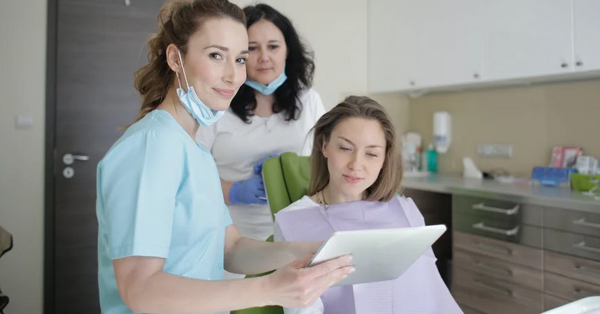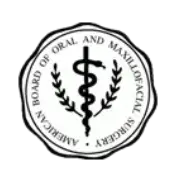Five Steps You Can Take to Prepare Successfully for Your Oral Surgery Procedure
Dental care is an important component of positive health.
Although the bulk of dental procedures are diagnostic and preventative, approximately 10% are restorative (≈ 7%) and surgical (≈ 3%), according to the Agency for Healthcare Research and Quality. A 2007 study reported that five million Americans get their wisdom teeth removed each year, not to mention procedures such as dental implants and bone grafting. Each procedure offers its own unique benefits - especially when you follow all preoperative and postoperative instructions.
If you require oral surgery, you can take steps to ensure the most optimal outcome. The key is to take proactive action so that your recovery is as straightforward as possible. Surgery preparation will reduce your risk of complications, increasing the rate of recovery. These five steps may help you as you approach your upcoming oral surgery.
Step One: Start with a Consult Appointment
A consult appointment is a chance to our surgeon who examine your mouth and x-rays and go over your medical history to reach a diagnosis and offer a proposed treatment plan with the dental codes. You will also be advised to other treatment approaches that would meet an accepted standard of care.
Depending on procedure, it is sometimes possible to combine the consult appointment with treatment at the same time, such as for a single tooth extraction, however for complicated cases it helps to have a time-out between consult and procedure to ensure everyone understands the case and is comfortable with the approach.
Tip 1: Discuss any aspects of the surgery that give you anxiety. This will allow you to talk through your concerns so that you are much more comfortable on the day of your surgery. It's also important to discuss any medications you are taking. The more your dental surgeon knows, the better for avoiding complications, such as drug interactions.
Tip 2: Many people are anxious about the cost of surgery and have a difficult time figuring out how much they will owe. If you have dental insurance, the treatment plan will provide dental codes for your care. You can call your insurance plan and check on coverage for each code. Our office will usually request a pre-authorization from your insurance plan, which will detail what is covered and your estimated co-pay will be. There is no charge for this service.
Step Two: Organize Postoperative Needs
Before your surgery date, ask a friend or family member to accompany you. After your surgery is complete, you will need a drive home. Regardless of the complexity of your surgery, even local anesthesia can impair your reflexes. If you opt for a ride service, make sure you do not order a car until you are told it is safe for you to leave.
Meal prep is also important. Be sure to follow a diet that will support you through your recovery, stocking up on soft, nutrient-dense foods. For example, cool or room-temperature liquids and soft solids may be best for the first day or two. Smoothies, applesauce, and yogurt are all ideal. You may then transition to warmer foods, such as broths, soups, and mashed potatoes. Prep any meals the day before you go into surgery so that you do not need to cook.
Tip: If you are undergoing a more complex operation, it's important to plan ahead. If you live alone, ask someone to stay with you or at least check in. If you have children, arrange for child care. When you are preparing your meal plan, consider the addition of a vitamin C supplement. A 2018 study, published in Clinical Implant Dentistry and Related Research, reported that vitamin C supplementation helps improve postoperative healing following dental surgery.
Step Three: Know the "Rules" for a Successful Recovery
There will be preoperative guidelines associated with your oral surgery. It is very important that you follow them. Again, it's important to prepare yourself for any alterations to your routine, particularly in terms of eating, drinking, and smoking habits. For example, most times you cannot eat or drink anything prior to your surgery (6-8 hours before). In other cases, when all you require is a local anesthetic, you may be able to have a light meal a couple of hours before you arrive. It is also very important that you do not smoke for at least 12 hours before surgery and a minimum of 24 hours after.
Tip: Work with your oral surgeon to create a post-op recovery plan that works for you. Besides a meal plan, discuss what you will need for icing, pain medication, oral hygiene, etc. What will help you heal and what might interfere with your recovery? Knowing the "do's and don'ts" will allow you to make the right decisions within the first 24 hours, as well as within the days and weeks to come. For example, many people do not realize the potential dangers of using a straw to drink. The suction created in your mouth can loosen the clot that keeps your wound closed and delay healing.
Step Four: Dress Appropriately for Surgery
When you are heading into surgery, you will want to wear comfortable clothing - for obvious reasons. However, it's also important that you wear a short-sleeved shirt to accommodate your IV drip. This will also be necessary for monitoring your vital signs and blood pressure. Do not wear any jewelry and, out of courtesy, avoid wearing any colognes or perfume.
Tip: Wear something to your surgery that is easy to remove when you get home. Have a change of loose-fitting clothing ready for when you arrive, opting for an outfit that is comfortable enough to sleep in.
Step Five: Sleep Well and Arrive Early
The night before, prepare for oral surgery just as you would any other surgery. That means getting a good night's rest. This will help you feel your best and better prepare the morning of. It's important to not feel rushed before your surgery. Unless your surgeon says otherwise, arrive at your appointment 15-20 minutes early. This will allow you to ask any last-minute questions or fill out any necessary paperwork.
Tip: If you're anxious the day before your surgery, take steps to ensure the best sleep possible. Recommendations include not consuming caffeine or alcohol, avoiding blue light from electronics, taking a warm bath, journaling to express your thoughts, and creating an optimal sleep environment.
If you think you may need oral surgery or have questions about what a certain procedure entails, Oral Surgery DC is here for you. Contact us for more information.






4.9 Stars
based on 134 reviews
5 Stars
based on 11 reviews
5 Stars
based on 11 ratings